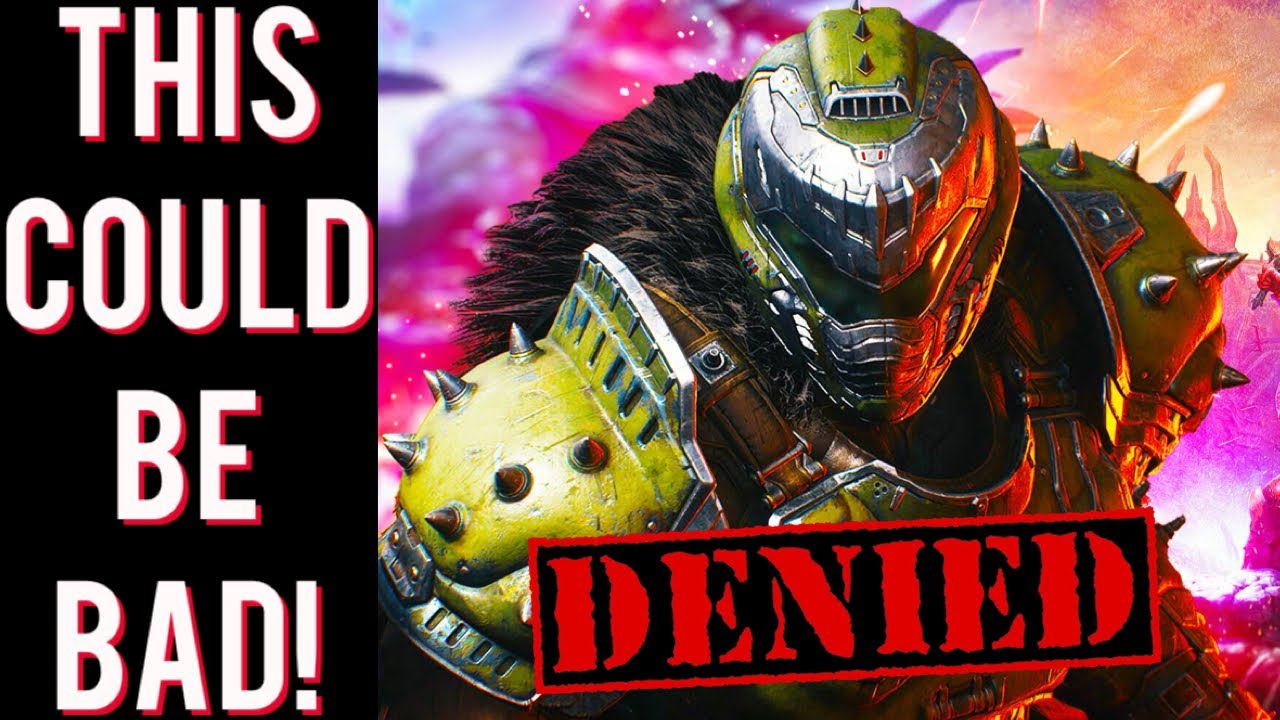Doom: The Dark Ages, the latest chapter in id Software’s legendary first-person shooter franchise, launched on May 15, 2025, to high anticipation. As a prequel to Doom (2016) and Doom Eternal, it promises a medieval twist on the series’ demon-slaying chaos, with the Doom Slayer wielding a Shield Saw, piloting mechs, and battling through 22 sprawling levels. With a Metacritic score of 85 and praise for its brutal combat and Lovecraftian Cosmic Realm, the game seemed poised to dominate. Yet, days before its release, a firestorm erupted over its physical edition, leading to a wave of preorder cancellations from angry fans. The issue? The game’s physical discs—both PS5 and Xbox Series X versions—contain only a fraction of the game’s data, requiring an 85 GB download to play. This article explores the backlash, its roots in the physical media debate, the game’s redeeming qualities, and why this controversy has struck a nerve with Doom’s dedicated fanbase.

The Spark: A Disc That’s Barely a Disc
The Doom series has long been a beacon for gamers who value raw, unfiltered action, and The Dark Ages was no exception. Announced in June 2024, it garnered strong preorder numbers, bolstered by a $69.99 standard edition, a $99.99 Premium Edition with early access, and a $200 Collector’s Edition featuring a 12-inch Doom Slayer statue. Fans eagerly awaited physical copies for PS5 and Xbox Series X, expecting a complete game on disc, especially given Blu-ray’s 100 GB capacity. However, when early copies shipped ahead of the May 15 release, players discovered a shocking truth: the discs were essentially placeholders.
The PS5 disc contains just 85 MB of data, and the Xbox Series X version holds 328 MB—mere launchers that trigger an 85 GB download to access the full game. This means that even with a physical copy, players need a stable internet connection and significant storage to play, rendering the disc little more than a glorified download key. For collectors, casual buyers, and those with slow or unreliable internet, this was a betrayal of the physical media promise. The backlash began when players who received early copies shared their findings, igniting frustration across social media and forums.
Why the Backlash Matters
The decision to ship near-empty discs isn’t unique to Doom: The Dark Ages—it’s part of a broader industry trend toward digital-first distribution. Games like Alan Wake 2 and Star Wars Outlaws have faced similar criticism for minimal disc data or digital-only releases. However, Doom’s case hit harder due to its storied history and fanbase, which includes collectors and players who prioritize game preservation. The controversy taps into several pain points:
Loss of Ownership: Physical media traditionally offers offline access and long-term playability, even if servers go offline. A disc requiring an 85 GB download feels like a digital purchase masquerading as a physical one, undermining the sense of ownership. If Bethesda’s servers are decommissioned, these discs could become useless, unlike older Doom titles that remain playable on retro consoles.
Internet Dependency: Rural players or those with data caps face significant barriers. An 85 GB download can take hours or days on slow connections, making the game inaccessible without high-speed internet—a stark contrast to Doom’s legacy of running on modest hardware.
Collector’s Disappointment: The $200 Collector’s Edition, with its statue and steelbook, was a draw for fans, but the “empty” disc soured the premium experience. Collectors expected a functional game, not a decorative coaster.
Preservation Concerns: Physical media is a bulwark against the ephemerality of digital storefronts. Titles like Baldur’s Gate 3, which shipped on multiple discs to ensure offline playability, set a high standard that Doom: The Dark Ages failed to meet.
The backlash reflects a deeper fear: the erosion of physical media in an industry increasingly dominated by digital ecosystems, subscriptions like Game Pass, and corporate cost-cutting. Fans see this as Bethesda prioritizing profit over player trust, especially since Blu-ray technology could easily accommodate the game’s full data.
The Fallout: Preorder Cancellations
The reaction was swift and severe. Players began canceling preorders en masse, with some targeting the standard edition and others abandoning the Collector’s Edition. The sentiment was clear: if the disc doesn’t contain the game, it’s not worth buying. Many expressed plans to wait for digital discounts or skip the game entirely, unwilling to pay full price for a product that feels incomplete. The scale of cancellations is hard to quantify, but the vocal outcry suggests a significant impact, particularly among physical media enthusiasts.
This backlash wasn’t just about Doom. Fans called out other upcoming titles, like Gears of War: Reloaded, urging developers to avoid similar missteps. The controversy has sparked a broader conversation about physical media’s future, with players demanding transparency from publishers. Some pointed to Baldur’s Gate 3’s multi-disc approach as proof that full physical releases are feasible when developers prioritize preservation.
The Game Itself: A Redeeming Force?
Despite the controversy, Doom: The Dark Ages has earned strong praise for its gameplay and design. As a prequel set in a techno-medieval war against Hell, it shifts from Doom Eternal’s acrobatic combat to a heavier, grounded style. The Doom Slayer, portrayed as an “iron tank,” wields new weapons like the Shield Saw (for blocking, parrying, and attacking), the Skull Crusher (a bone-firing gun), and a flail, alongside classics like the Super Shotgun. Players can ride a cybernetic dragon or pilot a 30-story Atlan mech, adding spectacle to the series’ visceral action. The game’s 22 levels, from demon-infested battlefields to the Lovecraftian Cosmic Realm, are larger and more open-ended than past entries, encouraging exploration and replayability.
Critics have lauded its brutal combat loop, enhanced by a parry system and slow-motion glory kills, with reviews averaging an 8/10 or higher. GameRant gave it an 8/10 for its exciting combat and soundtrack, while Eurogamer awarded four stars for its “brisk and playful” reimagining. The narrative, exploring the Slayer’s origins under the Maykrs’ control, adds depth, though some, like PC Gamer, noted simpler maps and puzzles compared to Doom Eternal, calling it an “overcorrection” for accessibility.
For players who can overlook the disc issue—especially Game Pass users or digital buyers—the game delivers the Doom experience: fast, violent, and unapologetic. Its day-one Game Pass availability and a discounted Steam preorder ($58.09 via Fanatical) have softened the blow for some, but the physical edition’s flaws remain a sore point.
Navigating the Controversy: How to Approach Doom: The Dark Ages
For players considering Doom: The Dark Ages, the disc controversy shapes the buying decision:
Digital Buyers/Game Pass Users: If you have fast internet or a Game Pass subscription, the disc issue is irrelevant. The Premium Edition ($99.99) offers two-day early access (May 13), a digital artbook, soundtrack, and Divinity Skin Pack. Game Pass Ultimate includes the standard edition on launch day, with a Premium Upgrade for extras.
Physical Buyers: Avoid the physical edition if you value offline playability or have slow internet. The disc’s 85 MB (PS5) or 328 MB (Xbox) requires an 85 GB download, making it no better than a digital purchase. Wait for a potential “complete” edition with full data or buy used at a discount.
Collectors: The Collector’s Edition’s statue and steelbook are appealing, but the disc’s limitations diminish its value. Consider digital or Game Pass if the statue isn’t a must-have.
Preservationists: Skip the physical copy and advocate for better practices. Support titles like Baldur’s Gate 3 that prioritize full discs.
To mitigate download issues, preload the game (available for preorders on Steam and consoles) or ensure 90 GB of free storage. If internet is a concern, play at a friend’s with faster connectivity or wait for patches that might reduce download size, though Bethesda hasn’t confirmed such plans.
The Bigger Picture: Physical Media’s Decline
The Doom: The Dark Ages backlash is a symptom of a larger industry shift. Publishers like Bethesda and Ubisoft increasingly favor digital distribution to cut production costs, streamline updates, and push subscription models like Game Pass. Blu-ray discs, capable of holding 100 GB, make the 85 MB decision baffling—likely a cost-saving move to produce cheaper, single-layer discs. This trend threatens game preservation, as digital-only titles risk vanishing if servers shut down, and physical discs without data offer no fallback.
The controversy has sparked calls for change. Players want publishers to commit to full discs, as seen with Baldur’s Gate 3’s multi-disc release, or at least offer digital codes alongside physical collectibles. The outcry may influence future releases, with fans hoping titles like Gears of War: Reloaded or Fable prioritize physical media. For now, Doom’s misstep is a cautionary tale, reminding developers that trust is hard-won and easily lost.
Looking Ahead: Can Doom Recover?
Despite the preorder cancellations, Doom: The Dark Ages is unlikely to flop. Its critical acclaim, Game Pass availability, and cross-platform release (PS5, Xbox, PC) ensure strong digital sales. Promotions, like a Hellfire Pepperoni pizza tie-in with Prince St. Pizza (offering a Ranger Slayer skin and Game Pass trial), keep hype alive. However, the physical edition controversy may dent collector sales and tarnish Bethesda’s reputation among preservationists.
Future patches could address download sizes, and a “Game of the Year” edition with full data might appease fans, though Bethesda hasn’t announced such plans. The game’s long-term success hinges on id Software’s ability to maintain goodwill through DLC (included in the Premium Edition) and community engagement. For now, Doom: The Dark Ages remains a stellar shooter overshadowed by a self-inflicted wound.
Conclusion
The Doom: The Dark Ages preorder backlash is a clash between fan expectations and industry trends, with Bethesda’s near-empty discs sparking justified outrage. While the game itself delivers the brutal, cinematic Doom experience players love, the physical edition’s failings have driven cancellations, particularly among collectors and preservationists. For digital buyers or Game Pass users, the controversy is a non-issue, but for those who cherish physical media, it’s a dealbreaker. As you decide whether to rip and tear through The Dark Ages, weigh your priorities—gameplay excellence or physical ownership—and let the Slayer’s saga unfold on your terms.





